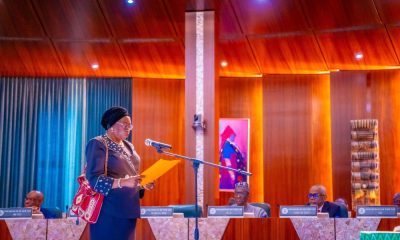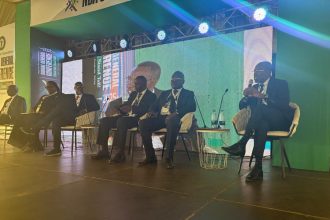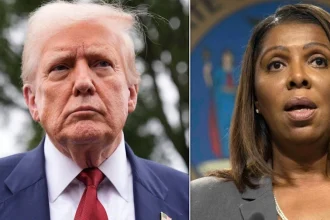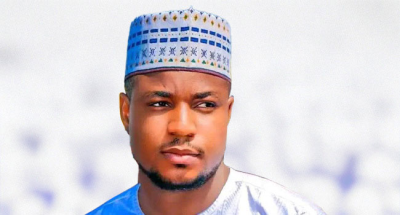The National Judicial Council (NJC), led by Chief Justice of Nigeria, Justice Kudirat Kekere-Ekun, is set to convene a critical meeting soon to examine reports from various investigative committees on alleged judicial misconduct.
As this upcoming session will be Justice Kekere-Ekun’s inaugural meeting as NJC Chair and the last scheduled for 2024, it has raised significant anticipation and tension within the judiciary. The NJC, created under Section 153 of Nigeria’s 1999 Constitution, holds the constitutional power to appoint, promote, and discipline judicial officers.
Justice Kekere-Ekun’s recent commitment to reinforcing judicial accountability has heightened anxiety within judicial circles. Sources close to the NJC report that the meeting will be scheduled once the Chief Justice concludes an official assignment abroad.

This meeting is expected to signal a new phase of accountability in the judiciary, as the Chief Justice is reportedly determined to act decisively on credible findings of misconduct.
Wave of Petitions and Investigations
Since May 2024, the NJC has received 22 formal petitions against 27 judges from both federal and state high courts, forwarded to its Preliminary Complaints Assessment Committee. This committee meticulously reviewed each petition and dismissed 18 of them due to reasons such as lack of merit, abandonment by the petitioners, or ongoing litigation (subjudice).
However, several cases merited further investigation, and in June 2024, the NJC established eight special panels to conduct in-depth inquiries into additional allegations against various judges.
The Preliminary Complaints Assessment Committee also handled 35 additional petitions against 33 judicial officers from the Court of Appeal and state high courts. Only eight of these petitions were deemed substantial enough for comprehensive investigation, emphasizing the NJC’s focus on genuine grievances.

More News
Furthermore, on August 15, 2024, the Council appointed four new panels to investigate cases with established prima facie evidence of judicial misconduct. Of the 55 total petitions received, 12 remain active and under rigorous investigation.
Panel Review and Deadlines
Each NJC investigative panel comprises a chairman and two members who have reviewed the petitions and issued requests to the implicated judges, allowing them to respond in writing and, where necessary, defend themselves in person with legal representation.
Although these panels were tasked with completing their investigations by October 31, 2024, several judges, including a Chief Judge, requested deadline extensions due to multiple pending petitions. The panels granted a 24-hour extension to accommodate these cases, stressing the need for punctual compliance.
Upon the Chief Justice’s return, the NJC’s final quarterly meeting for the year will be scheduled to review the panels’ reports and determine necessary actions. As a source close to the NJC noted, “This session will likely mark a new era for judicial accountability,” with Justice Kekere-Ekun committed to restoring public trust through decisive responses to judicial misconduct.
Judiciary Faces External Pressure Amid Conflicting Orders
Apart from the misconduct allegations under NJC investigation, external pressure has mounted on the Council from prominent legal figures regarding a recent judicial crisis in Rivers State. Two high court judges in Rivers State issued conflicting orders related to local council elections held on October 5, 2024. S
enior advocates and legal scholars, including Chief Mike Ahamba, SAN; Prof. Awa Kalu, SAN; Prof. Chidi Anselm Odinkalu; and Chief Samuel Jibrin Okutepa, SAN, have condemned the situation, describing the tendency of judges to assert jurisdiction over political cases as detrimental to judicial integrity and a danger to Nigeria’s democratic stability.
This issue of conflicting judicial orders is not new. In May 2024, a similar incident emerged in the Kano emirship dispute when three high court judges—Justices Mohammed Liman, S. Amobeda, and Amina Aliyu—issued contradictory rulings, which led to dual emir appointments and significant unrest in Kano State.
Despite then-Chief Justice Olukayode Ariwoola summoning the heads of the affected courts for explanations, no punitive measures were taken, and the judges involved continued handling the cases without repercussions.
A Call for Judicial Reform and Accountability
Justice Kekere-Ekun’s tenure marks a renewed focus on judicial reform and accountability. The Chief Justice has expressed her commitment to thoroughly assessing the current allegations and strengthening measures to prevent judicial misconduct, sending a clear message that unethical behavior will not be tolerated.
By actively reviewing the remaining petitions and implementing potential sanctions, the NJC aims to demonstrate its resolve to uphold judicial integrity and public confidence in the legal system.
The upcoming NJC meeting thus holds significance not only for the implicated judges but also for the judiciary as a whole, as Justice Kekere-Ekun strives to institute reforms that reinforce the judiciary’s role as a pillar of justice and impartiality in Nigeria.
With prominent voices calling for transparency and integrity within the judiciary, this session may pave the way for transformative changes in how judicial officers are held accountable, ensuring that the NJC remains vigilant and responsive to any deviation from ethical and professional standards.









